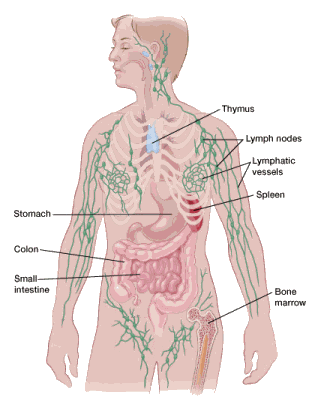
Hodgkin [hodj-kin] Examples noun
- Sir Alan Lloyd,1914–1998, English biophysicist: Nobel Prize in Medicine 1963.
- his cousinDorothy Mary Crow·foot [kroh-foo t] /ˈkroʊˌfʊt/, 1910–94, English chemist: Nobel Prize 1964.
Examples from the Web for hodgkin Contemporary Examples of hodgkin
Demicheli also had been a physicist but had switched to oncology research after his wife died of Hodgkin lymphoma in 1976.
How Big Pharma Holds Back in the War on Cancer
ProPublica
April 23, 2014
Historical Examples of hodgkin
When you were a widow, and Baby and the pony were orphans, you and Mrs. Hodgkin would be sorry.
Alan Alexander Milne
Mr. Hodgkin, in his fourth volume, has told it in a style which is beyond all praise.
Arthur H. Norway
Dr. Hodgkin’s “Tribune instead of Prefect” seems scarcely admissible grammatically.
Edward Conybeare
Mr. Hodgkin, of Eridge, some time ago had a female Manx cat sent to him.
Harrison Weir
Mr. Hodgkin appears to think that in this direction lies the main danger which threatens the British Empire.
Political and Literary essays, 1908-1913
Evelyn Baring
British Dictionary definitions for hodgkin Hodgkin noun
- Sir Alan Lloyd. 1914–98, English physiologist. With A. F. Huxley, he explained the conduction of nervous impulses in terms of the physical and chemical changes involved: shared the Nobel prize for physiology or medicine (1963)
- Dorothy Crowfoot. 1910–94, English chemist and crystallographer, who determined the three-dimensional structure of insulin: Nobel prize for chemistry (1964)
- Sir Howard. born 1932, British painter, noted for his brightly coloured semi-abstract works
hodgkin in Medicine Hodgkin [hŏj′kĭn]Sir Alan Lloyd 1914-1998
- British physiologist. He shared a 1963 Nobel Prize for research on the action of nerve impulses.
Hodgkin Dorothy Mary Crowfoot 1910-1994
- Egyptian-born British chemist. She won a 1964 Nobel Prize for determining the structure of compounds needed to combat pernicious anemia.
Hodgkin Thomas 1798-1866
- British physician who developed criteria for classifying the malignancy of a cancer. He was the first to describe (1832) Hodgkin’s disease.
hodgkin in Science Hodgkin [hŏj′kĭn]Dorothy Mary Crowfoot 1910-1994
- British chemist who used x-ray techniques to determine the structure of several complex molecules, including penicillin (1942-45) and vitamin B12 (1948-56). For this work she received the 1964 Nobel Prize for chemistry. She later used more advanced computing methods to analyze the structure of insulin.
 Liberal Dictionary English Dictionary
Liberal Dictionary English Dictionary